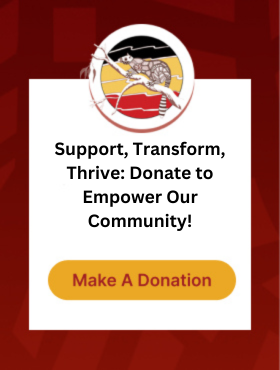- Aboriginal Best Start
- Aboriginal Centre For Males Referral Service
- Aboriginal Centre For Males Referral Service – Copy
- Aboriginal Cultural Awareness Training (ACAT)
- Aboriginal Justice Caucus (AJC) Secretariat
- Aboriginal- Private Rental Assistance Program
- Bert Williams Centre
- Community Development Officer

VACSAL

VACSAL
Aboriginal Cultural Awareness Training (ACAT)

Aboriginal Cultural Awareness Training (ACAT)
Whilst VACSAL’s core business relates to advocacy and community service provision, an important part of VACSAL’s work relates to the design and delivery of Cultural awareness programs, which it undertakes as part of its enterprise development strategy.
Importantly, income received from this activity goes directly back into the agency for the purpose of service expansion to the Aboriginal community.
The demand for Aboriginal Cultural Awareness Training (ACAT) has increased dramatically over the past years. Government departments and non-government agencies which provide services to Aboriginal communities or implement policies which impact on Aboriginal people have all indicated a specific need for training.
VACSAL has played an important role in responding to this demand by tailoring Aboriginal cross-cultural awareness training packages to suit the requirements of different agencies, corporations, businesses, departments and to different levels of operation within these areas.
We have developed considerable expertise in the customisation and delivery of Aboriginal cultural awareness programs.
The provision of this training has become an important component of VACSAL’s activities.
VACSAL HAVE DELIVERED TRAINING TO THE FOLLOWING AGENCIES

Department of health and human services and Department of families, fairness and housing and Department of justice.

Judges, supreme & family court magistrates, juvenile justice workers, lawyers (law firms), correctional officers and managers

Community services organisation, childcare workers, Australian Association of Social Workers (AASW)

Centre for Excellence in Child and Family Welfare

VET sector teaching staff (VDC)

VICSports and Australian taxation department
WHAT DOES ABORIGINAL CULTURAL AWARENESS TRAINING PROVIDE ME?
Aboriginal Cultural Awareness Training (ACAT) develops specific skills, knowledge and attitudes. It encourages and assists participants to develop:

A knowledge and awareness of one’s cultural identity in relation to colleagues, clients, and customers.

An understanding of the type of languages (written and spoken) that is generated in a particular field and the cultural assumptions and underpinning language.

The skill to put advice and information into appropriate language for the receiver.

A knowledge of the different behavioural styles of people from different cultures

An attitude of tolerance towards differences

An effective cultural awareness training program is a blend of information, self-evaluation and skill formation.
It leaves participants better informed about global and local issues in relation to Indigenous culture and more than anything it leaves participants feeling positive about themselves and their capacity to work better and more effectively with Aboriginal people, families and Communities.
TOPICS COVERED DURING ABORIGINAL CULTURAL AWARENESS TRAINING

Cultural Awareness Perspectives

White Australia has a Black History

Demographical Data

Culture and Value Systems of Aboriginal people

Racism, Stereotypes & Ethnocentrism
